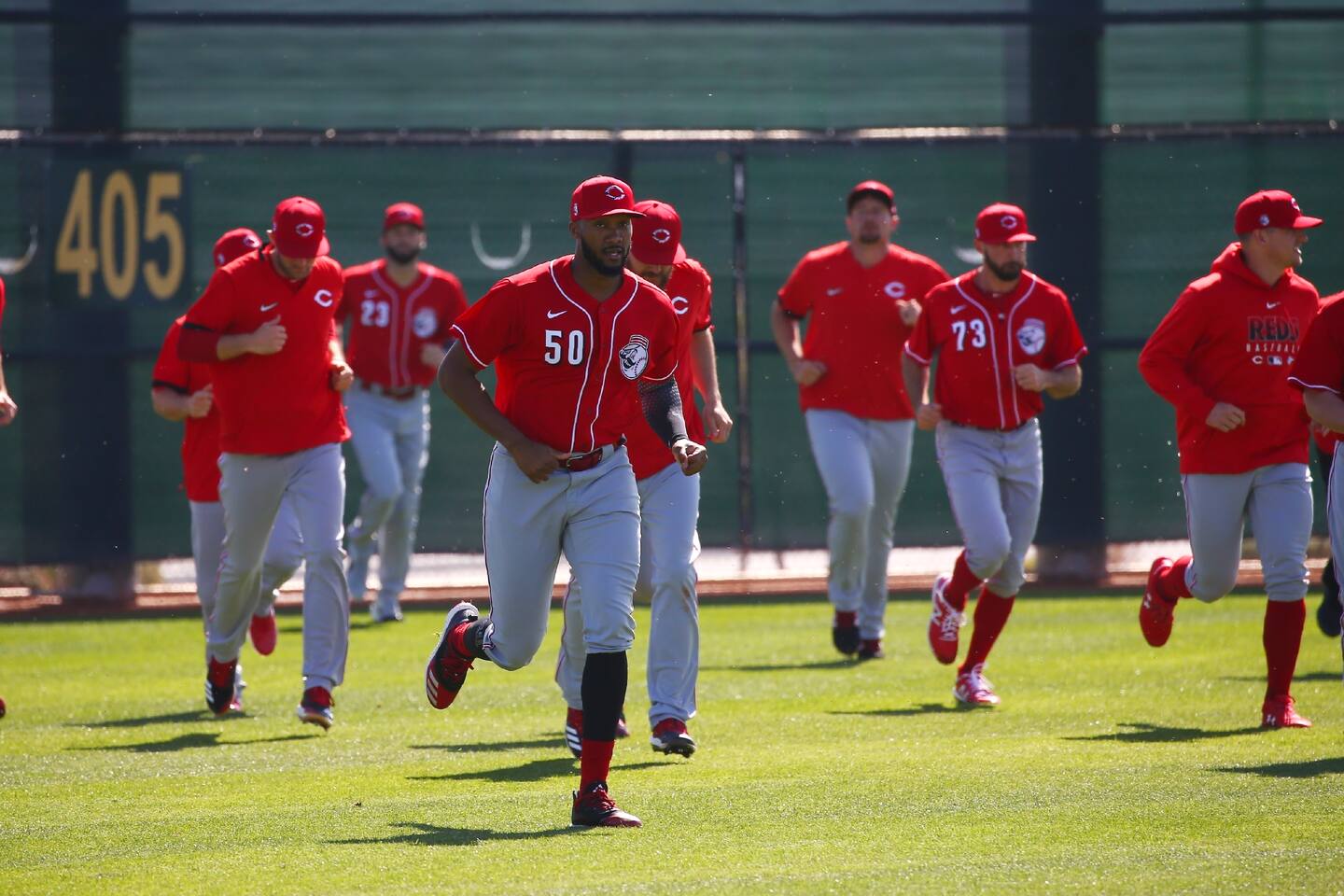MLB, players’ union agree to health and safety protocols, clearing way for spring training to start

When they report, players, coaches, on-field staff and other essential personnel will be subject to covid-19 protocols that are similar, but not identical, to the ones the sport used last season, according to a copy of the protocols obtained by The Post.
The agreement also calls for increased discipline for those who violate the guidance, which could include unpaid suspensions or forfeiture of salary for those who are forced to miss time.
In terms of competition, the biggest change to the 2020 agreement is the lack of a universal designated hitter, something both sides had agreed to last year.
To account for the challenges the coronavirus pandemic can pose to rosters, doubleheaders will be shortened to two seven-inning games, rosters will expand from 25 to 26 (28 in September), and there will be no limit on the number of pitchers on the active roster.
The fact an agreement exists represents important progress for groups that have refused to agree on much all offseason.
Just last week, the players’ union rejected MLB’s latest proposal to delay the season while implementing an expanded postseason and universal designated hitter for 2021. People within MLB expressed displeasure at the union’s unwillingness to make a counteroffer. The union was not obligated to do so because both sides have signed on to the collective bargaining agreement and neither is obligated to renegotiate it.
In the wake of the union’s rejection of its offer, MLB issued a statement saying it was “instructing our Clubs to report for an on-time start to Spring Training and the Championship Season, subject to reaching an agreement on health and safety protocols.”
Discussions surrounding those protocols were less contentious than conversations about larger, long-running collective bargaining sticking points such as the designated hitter or expanded playoffs, multiple people familiar with the negotiations said.
But that the sides reached an agreement was hardly a given: At one point last year, the union had pushed to include the universal DH as part of the health and safety protocols, something MLB rejected out of hand. Some people familiar with the negotiations wondered whether that proposition would become a sticking point in the 2021 health and safety protocols, too. Ultimately, that did not happen, and the sides agreed.
Players must quarantine for five days in before they report to spring training facilities, according to the terms of the deal. This seems particularly relevant, since many players have already reported to their team’s facilities in Florida and Arizona — and some teams’ pitchers and catchers are scheduled to report a week from today.
When they report, players and other personnel will undergo an intake screening that includes a temperature check, a coronavirus test via nasal swab, and a rapid antibody test. Once normal business begins, players will be subject to temperature and symptom checks daily, and will have a coronavirus test “at least every other day.” They will undergo antibody testing at least once a month.
The league will also offer free testing to anyone in a player’s household, though this testing will “remain completely voluntary.”
As part of an effort to bulk up contact tracing, everyone covered by the health guidelines must wear a Kinexon contact tracing device at all times during team workouts and travel.
Data from those devices will not be made available to the league, union, or other outside groups, but will be used by each organization’s contact tracing corps to determine how much time someone spent around an infected individual, and where they interacted.
Outside of team facilities, players and personnel may not attend indoor gatherings of more than 10 people, dine at indoor restaurants, bars, or lounges, work out in gyms or other facilities not affiliated with the league, or engage in any activity “prohibited by state or local regulation.”
On the road, members of traveling parties may not leave their hotel other than for activities at the ballpark, medical examination, travel with the team, outdoor walks or exercise, or “in extraordinary circumstances.” Teams may implement their own rules to maintain the health of players, but only if they add to the restrictions agreed to by the league and union, not lessen them.
This past year, in a shortened season, 40 games were postponed because of coronavirus outbreaks. The two sides hope to avoid a similar issue on a larger scale this year, in part by bolstering the discipline for those who violate what they are calling a code of conduct.
“Any Covered Individuals who are found to have violated the Code of Conduct … are subject to potential discipline, including but not limited to suspension or forfeiture of salary for days spent away from the Club while in mandatory self-isolation or quarantine resulting from the violation,” the agreement states.
The agreement also requires face coverings be worn at all times in team facilities, with few exceptions.
Many organizations were waiting to see how protocols would affect their spring training plans, holding off on official invites and roster moves before they knew exactly how many players and support staff would be allowed to attend.
Per the agreement, organizations are limited to 75 players and 75 staff at their complexes, and are encouraged to spread them out as much as possible.
Separate from Monday night’s agreement, MLB is also making plans to limit travel among Grapefruit League teams once they begin play this spring, as first reported by the Athletic on Monday afternoon. Five teams (the Washington Nationals, Houston Astros, Miami Marlins, St. Louis Cardinals and New York Mets) play within 45 minutes of one another on Florida’s Atlantic coast, while 10 others play in the central and western parts of the state.






